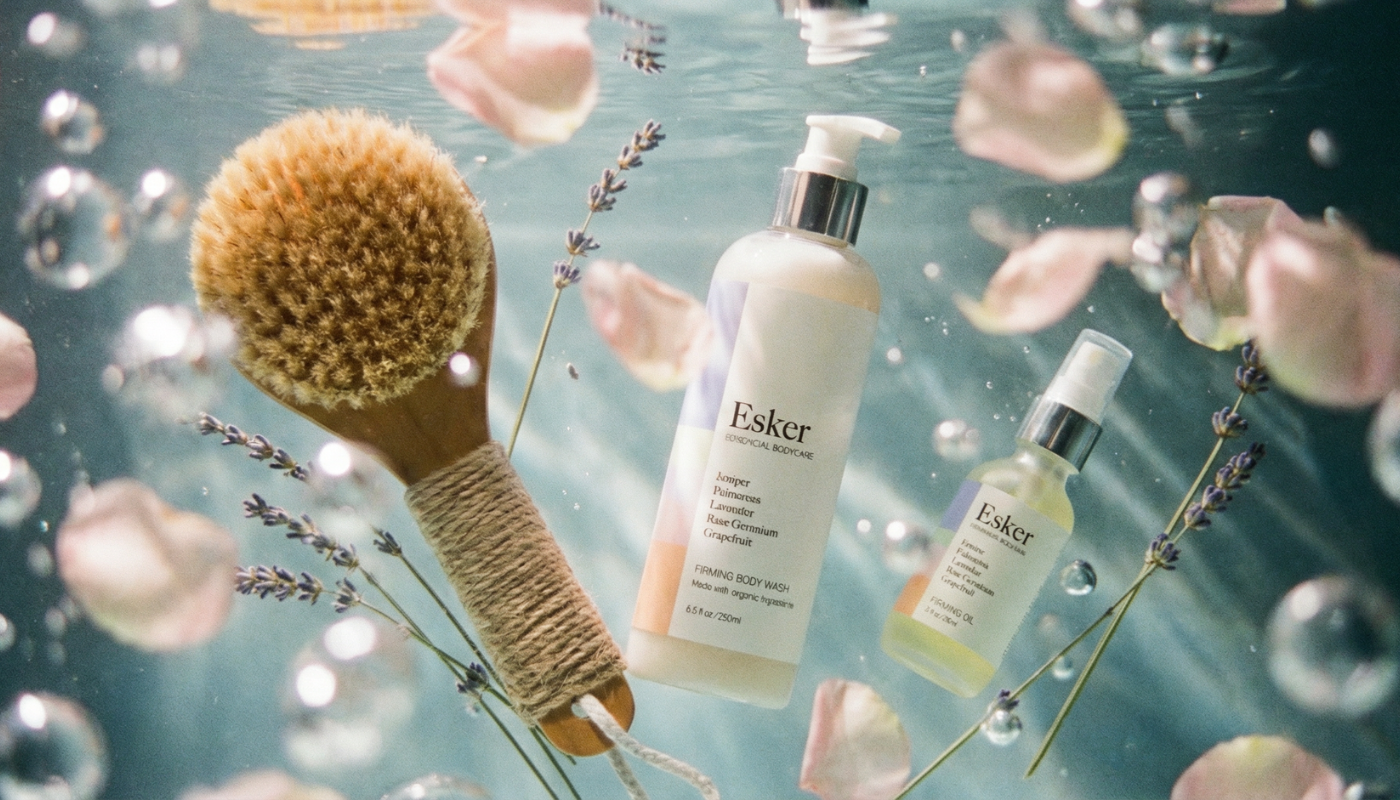If you don’t already know by now, we’re serious proponents of bathing rituals. And it’s not just because we like being clean (baths tend to do that); but we believe that baths and showers can do everything from erase a bad day to give you better sleep. All magic aside, a self-care bathing practice is truly a form of therapy and de-stress. Research studies have shown that both warm and cold bathing offer a wide range of physical and mental health benefits to alleviate anxiety. In celebration of Stress Awareness Month, here are 3 Mental Health Benefits of A Bathing Routine.
1. Cold Plunges Can Boost Your Mood
If you watched GP’s controversial Goop show on Netflix, you may have already heard of the “Wim Hof Method”. The method involves soaking in an ice bath or showering with ice-cold water (or, if you’re so inclined, diving into a frigid body of water). Benefits of the cold plunge have reported to be everything from improving mood to reducing a fever. But in today’s world, the biggest benefits are associated with mental health. According to an article from the NY Times, several ongoing studies are being conducted to determine a direct link between cold plunges and improved mental illnesses such as depression or anxiety.

2. Studies have shown that incorporating immersion bathing into your routine can improve overall health
In the US, two-thirds of individuals stick to showering as their preferred bathing method. Japan, however, continues to incorporate regular immersion bathing as part of their routine. A 2018 Japanese study recently explored the differences in general health and well-being between showers and bathers with interesting results. In a month-long study of 38 randomized participants, individuals were assigned to two weeks of showering, followed by two weeks of immersion bathing in warm water. After each period, they were surveyed on their physical and mental health. Reported results were “significantly better for fatigue [and] stress, [...] and tended to be better for self-reported heath and skin condition after bathing intervention than after showering intervention. Profile of Mood State scores were lower for stress, tension-anxiety, anger-hostility, and depression-dejection.”
3. A warm bath can strengthen your circadian rhythm and improve your sleep
Sometimes, the only way to reset is with a good night’s rest, and sleep is often integral to treating depression. A 2018 “New Science” study on baths and mental health concluded that “taking regular afternoon baths is associated with a moderate but persistent lift in mood among people with depression.”
Warm baths have historically been prescribed as effective sleep aids, and in recent years, research groups have explored the science behind how baths affect the body’s circadian rhythm, regulating our body temperature and the quality of sleep.
All science aside, bathing and showering are both effective ways of escaping the hectic pace of our day. Whether it’s a 10-minute cold shower to start your day or a 2-hour bath, we encourage you to take time to take care. Prioritize yourself this and every month. Happy bathing!
Interested in learning more about the physical health benefits of bathing? Read our article on the unexpected benefits of bathing for more.
References
-
“Physical and Mental Effects of Bathing: A Randomized Intervention Study” (link)
-
“How taking a hot bath can have a positive benefit your mental health” (link)
-
“Morning Showers Can Boost Your Mental Health, Here’s Why” (link)
-
“Cold Water Plunges Are Trendy. Can They Really Reduce Anxiety and Depression?” (link)








1 comment
Marsha
I’m really interested in your story and information about skin
I’m about to turn 70 years old and would love to rejuvenate my dry dry skin
I’m really interested in your story and information about skin
I’m about to turn 70 years old and would love to rejuvenate my dry dry skin